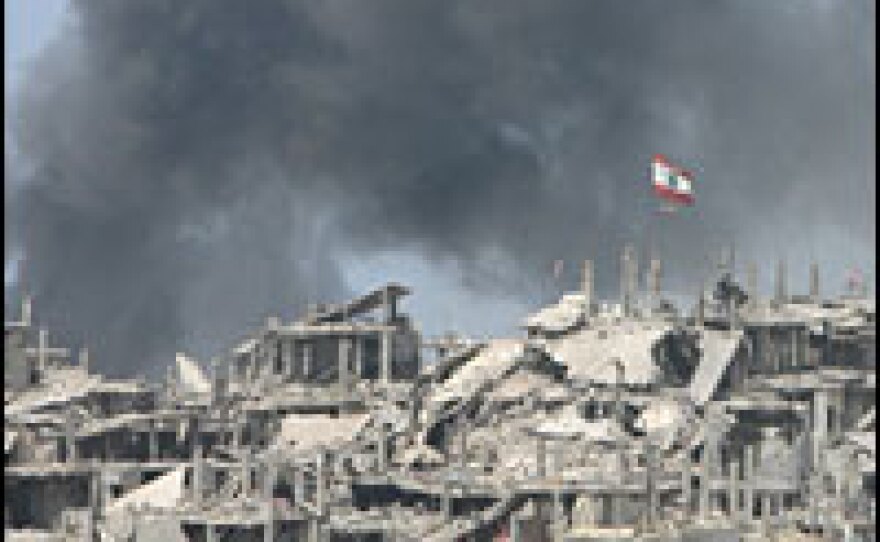The coast of Lebanon is dotted with crusader castles, where countless medieval battles were fought. Centuries later, a seaside Palestinian refugee camp outside the city of Tripoli has become the site of a modern-day siege.
More than 10 weeks since a battle erupted in northern Lebanon between the Lebanese army and a band of Islamist militants holed up in the camp, more than 120 Lebanese soldiers are dead and thousands of refugees homeless.
A once-bustling community of some 40,000 Palestinians has been reduced to stacks of smoking concrete where gun battles rage day after day, and military commanders fear that the fighting could go on for another month or more.
Lebanese flags flying from bombed-out rooftops mark the army's advance into the Nahr al-Bared camp. Commanders say that they have encircled 60 to 100 Fatah al-Islam militants in a small but heavily-fortified corner of the camp.
But the guerillas are fighting to the death, killing Lebanese soldiers with booby-traps and snipers.
Local residents appear to have adapted to the rhythms of this siege. Traffic streams down a highway overlooking the battleground. Drivers are seemingly unfazed by the sounds of the bloody struggle less then two miles away.
Little was known about Fatah al-Islam, an obscure group led by a Palestinian and comprised of several hundred fighters from across the Arab world. The Lebanese army was unprepared and ill-equipped to battle the group, and after the fighting began, the U.S. and other allies of the Beirut government dispatched emergency planeloads of ammunition and other equipment.
Public opinion in this notoriously divided country has been squarely behind the Lebanese military. Near Nahr-al-Bared, Lebanese civilians play patriotic music and wave flags at the thousands of Lebanese troops deployed around the camp. Many locals are angry at the hundreds of thousands of Palestinians who have lived in refugee camps in Lebanon for more than half a century.
Mustapha Hazim sells jeans and flip-flops in his store less than two miles from the siege.
"I will to burn all the Fatah-Islam and Palestine in Lebanon. I don't like Palestine in Lebanon," Hazim says.
But Khalil Mekkawi, the Lebanese official in charge of relations with Palestinian communities, has promised to completely rebuild Nahr al-Bared. The government worries that the fighting could draw in other armed Palestinian factions located in the many other teeming camps scattered around the country.
"The Palestinians were left impoverished, unattended, in very miserable conditions the camps, so these camps became a fertile ground for extremists and fundamentalists," Mekkawi says.
Copyright 2022 NPR. To see more, visit https://www.npr.org. 9(MDAzMjM2NDYzMDEyMzc1Njk5NjAxNzY3OQ001))







